- Home
- Douglas Niles
Darkwell Page 2
Darkwell Read online
Page 2
As he neared the Darkwell, he sensed a difference around him. It was not a difference in the land or even the air, but a subtle presence on a deeper level. Something was here that had not been here when he left.
He saw the well before him, its slick black surface barely reflecting the white outlines of the statues. The Darkwell had, since its creation a month before, been a center of power for his god.
But now Hobarth sensed something mightier, more dynamic than the gate connecting his god’s world to his own. In a flash of understanding, he understood, and as he understood he dropped to his knees.
Bhaal was here!
Hobarth shivered, a strange mixture of ecstasy and fear. He knelt, closed his eyes, and prayed with all his heart.
“O mighty Bhaal, Reveler in Blood, master of my destiny …” The cleric moaned his prayer softly, wondering at the presence of his god. Was Bhaal angry? Was he pleased? What was the purpose of this visitation?
Approach the well.
Hobarth froze for a moment as the god’s command grasped his heart. He felt cold fingers engulf his soul, only to let it free again after a glimpse of something awesome and terrible. Numb, he stood and stepped slowly toward the Darkwell.
The Great Druid.
Hobarth understood the command instantly and stopped beside the Great Druid—or rather, the statue that had been Genna Moonsinger, the mistress of Myrloch Vale and Great Druid of the isles. Now she stood frozen as a white stone sculpture, lifelike in every detail. Many times had Hobarth stood before her and cursed her defiant expression.
He saw the challenge still lurking in her eyes, and in the firm set of her jaw. Her wrinkled skin and tightly wrapped hair might have given her a grandmotherly look, but instead she looked more like a warrior.
The Heart.
This command brought a glimmer of defiance, for just a brief moment, to the cleric. Hobarth kept the Heart of Kazgoroth in a pouch at his side, and he was most reluctant to remove it for anyone or anything. The stone was black, shaped more like a lump of coal than a heart, but it was a talisman of great evil. In the cleric’s hands, the Heart of Kazgoroth had brought death and decay to the formerly pastoral vale.
But Hobarth overcame his reluctance instantly and hastened to obey the word of his god. He removed the stone from its pouch and held it out before him. It seemed to absorb the rays of the sun, already dimmed by the pale haze. In its own shadow, the cleric reached forward to touch the heart against the cold stone of the statue.
Bhaal must be very near, Hobarth thought, for it seemed to the cleric that the god leered over his shoulder. Hobarth acted as if by instinct, performing a ritual he had never seen, yet one that he knew without question or doubt. He sensed that Bhaal was pleased, and his god’s pleasure was a thrill unlike any the cleric had ever known.
The black surface of the heart touched the white stone of Genna’s breast. Yellow smoke hissed at contact, and trickles of clear liquid ran down the statue’s stony robe. Where the stone was wet, it became a bright red, like freshly spilled blood.
Hobarth stared into the statue’s eyes, and he saw the defiance that had been etched there begin to fade. He pressed his hand against her and was gratified to feel the Heart of Kazgoroth sink into the stone. More smoke spewed, nearly blinding him, but he kept his gaze fastened upon the statue’s eyes.
His own eyes watered. The statue grew soft, and Hobarth’s hand, together with the black stone, passed directly into the cold body. Quickly he drew forth his hand empty, and the surface of the statue closed behind it. He looked again into those stone eyes.
Only it was no longer a statue, and the eyes burned with a far from stonelike fire.
The low green mass of Corwell loomed to starboard. To port, invisible in the gray haze of sea-miles, lay the island of Moray. And below the keel of the sleek longship rolled the gray swells of the Strait of the Leviathan.
But Grunnarch the Red knew that the Leviathan was dead. Had not the Red King played a role in its demise only a short year earlier? He found the memory vaguely disquieting.
Now the ruler of the northmen stood boldly on the deck of his ship, the Northwind, and stared into the distance. Not north, toward Norland and home, but east, toward Corwell.
Why did that land hold such fascination for him? The Red King himself did not know, though certainly the roots of the answer lay in the disastrous invasion and his army’s subsequent defeat. Grunnarch had been fortunate to escape with half of his ships and men, while many of his allies had suffered worse. The men of Oman’s Isle, of the kingdom of Ironhand, had been virtually annihilated.
Now the Northwind, accompanied by the slightly smaller longship Redfin, sailed past that land after a long summer of raiding shores far from the Moonshaes. In less than a tenday, they would be home, but even the prospective homecoming could not lighten the Red King’s brooding sense of foreboding.
True, the raiding had been highly successful. They had sailed south along the Sword Coast, plundering the towns of Amn, and even northern Calimshan. The Northwind rode low in the water from the weight of silver stowed along her keel, together with golden chalices, mirrors, fine tapestries and silks, and all manner of things treasured in the Moonshaes.
And there was the scroll. Grunnarch wondered why that lone treasure, scribed in a symbology he could not read, should figure so prominently in his thoughts about the trove.
The lord mayor of Lodi stood before him, outlined by the blazing framework of his blockhouse. The man met his gaze without fear, but Grunnarch could see defeat in his eyes. The Red King, his bloody axe in his hands, watched the mayor with interest.
“I offer you our greatest treasure. In return, I ask only that you spare the children.”
Grunnarch took the ivory tube, surprised at its lightness. He had expected the container to hold platinum, or at least gold, in quantity. Curious, he pulled the cap off and saw that it held but four small sheets of parchment.
“Treasure?” he said menacingly. “This is worthless!”
But the mayor did not flinch. “You are wrong. You have probably never held such worth in your hands!”
Grunnarch paused. The man’s plea meant little—northmen did not slay children, so the town’s youth had never been in danger. Truly the Red King had no use for a scroll. Yet, as he held it, he began to sense that it was indeed an object of rare worth.
A strange feeling came over him as he examined the exterior of the scroll case. He saw a picture of a beautiful young woman, sensual and rounded, and yet his reaction was a wish to protect her. Other pictures—a vast field of grain, a smooth lake, and a cozy fire in a hearth of stone—all beckoned him with sensations of warmth and comfort.
Disquieted, he took the scrolls gruffly. He turned on his heel and ordered his surprised crews back to their vessels, leaving Lodi almost unscathed. They took no other plunder but instead put straight to sea under the harsh urging of the Red King.
And so came the scrolls with him to the Moonshaes.
This season of plunder had dragged on for Grunnarch, for he lacked the fiery battle lust that had once made him relish the strike of steel against steel, the striving of man against man. Now battle was merely another tiresome task that faced him all too often.
After the raid on Lodi, the Red King had lost heart for battle altogether. Rationalizing that the season was late, he had ordered the two ships homeward, ignoring the surprised reactions of his crew. After two tendays upon the Trackless Sea, they had returned once again to the Moonshaes. Now they slipped between two kingdoms of the Ffolk, headed toward his own lands to the north.
And still that feeling of foreboding remained with him, perched upon his broad shoulders like some unnatural apparition.
A great brown bear shuffled across the dead land, pausing to turn over a log with his broad forepaw or to snuffle under a stump with his nose. Once again, the spoor of even a tiny maggot or grub eluded him. Grunt huffed in frustration, too weak to take even a halfhearted swing at the offending st
ump.
There was no food here.
Grunt stumbled on, sensing that to stop was to die. Long gashes covered his shaggy flanks, now crusted with dried blood. One of the cuts lay freshly opened, a victim of some scrape against a looming trunk.
Even in the depths of his fatigue, Grunt moved with pride and purpose. His head held high, his posture was a challenge to any lesser creature that might cross his path. But his footsteps were unsteady, and the great brown eyes grew dull. There were no creatures to cross his path and behold his prideful agony.
This was land Grunt had known all of his life, yet he did not know it now. The grove of his mistress, Genna Moonsinger, the Great Druid of the isle, now festered and decayed. Many were the animals that had lived here, amid a lush blanket of greenery. Now there was no creature. Now there was nothing green.
Grunt growled, the sound rumbling low in his chest. He blinked, peering around as if trying to clear the nightmare vision from his eyes. Then he lumbered on, resolutely plodding across the wasteland in search of food or water.
Suddenly the bear lifted his great head and froze. His only motion was the twitching of his broad nostrils as they searched the air. Whatever it was, a scent excited the bear like nothing else in many days.
Grunt started forward faster now, breaking into a clumsy trot. He uttered one coughlike grunt, then another. Before him lay the former heart of the grove. Recently the bear had somehow sensed that this was the center of its corruption and had thus avoided it. But even the suspicion of the exciting spoor in the wind was enough to compel him there.
Genna? Hope swelled within the bear’s breast. Was that not his mistress, standing there in the distance, staring at him? He sniffed at the air, lumbering closer. The scent was that of the Great Druid, he thought, but somehow different.
Blinking in confusion, Grunt struggled to focus his dim eyesight. He saw the short, rounded body, recognized the gray hair pulled tightly back from the face. He saw no smile upon that face, and the human’s posture seemed stiff and unnatural.
Yet his eyes could not be wrong. He slowed as he reached the woman and grunted happily, leaning into her expectantly. The bear was surprised when she did not scratch his ears. What was wrong? Grunt looked at the round, wrinkled face curiously.
And in an instant, he recoiled in fear. Cringing low, the bear looked up at her like a whipped puppy, puzzled and pained by the look in her eyes.
She raised her arm, pointing, and Grunt obeyed. His huge body moved toward the black water, where once the crystalline Moonwell had reflected the blessing of the goddess. Quivering, he approached the water.
The bear turned once to look back at his mistress, his eyes pleading. She pointed again, and he dropped his head obediently. His muzzle touched the surface of the Darkwell. And then his life was gone as he gave it, unwittingly, to Bhaal.
Chauntea, as a goddess, was close in spirit to the Earthmother, though far removed in aspect. While the great mother’s life lay in the earth itself, in the hallowed ground of the Moonshaes, Chauntea’s being dwelled upon the joyous plane of Elysium, far removed from the world of mortals.
The Earthmother’s followers were the Ffolk of the Moonshae Isles, led by their druids. Chauntea’s believers came from across the planes, and even in the Forgotten Realms were spread among the many nations of the world. The tenets of the Earthmother’s faith held that nature was sacred, and maintaining the balance of all things became the druidical creed. Followers of Chauntea held that the land should be farmed, that the growth provided by nature should be harnessed for the greater good of man.
Yet despite their differences, the goddesses both were beings of health and growth, cherishing the plants and animals, working to protect the humans who held to their faith.
Now Chauntea sensed the power of the Earthmother waning. She also felt the looming presence of Bhaal. As that dark god moved into the power vacuum being created, Chauntea also began to move. Though she lacked Bhaal’s awesome might and implacable evil, she was a being of great resource in her own right.
Now those resources would be tested.
or the first time, the wind seemed to be against them. It blustered from this direction and that in capricious gusts. To all sides stretched the sea, a gray mass of rolling swells, broken only by the foaming crests of the waves. The sky matched the water, a gray blanket of cold pressing heavily from horizon to horizon.
Overhead, the sail filled with air, spurring the ship across whitecaps and through deep troughs. Then the wind shifted, and the sail fell limp. The vessel slid crazily to the side, dropping between two rolling swells. A line drew taut as the boom swung across the stern. Two sailors dropped prone, while others hauled on a heavy rope until the sail once again billowed. The bow of the boat swung to port, angling across the waves on a slightly altered course.
Tristan Kendrick, heir to the throne of Corwell, stood in the bow of the Defiant and relished the cool spray against his face. It ran through his beard and soaked his heavy wool cloak. His feet were planted in a wide stance, and he swayed evenly with the rolling deck beneath his feet.
The ship lunged eagerly through the next swell, and the one after that. Each wave brought him and his companions closer to Corwell Firth and the castle on the little knoll, Caer Corwell.
Home.
Just a few short tendays ago, Tristan reflected, his first ocean voyage had carried him across this same water. Then, he had embarked on a mission of politics, to seek his coronation from the High King. Now he carried the crown of that same king—the Crown of the Isles—and he returned in triumph to his home. He knew he should be feeling joy and anticipation, but he could not.
He felt, rather than saw, a warm presence beside him and turned to see Robyn. Though she had slept little and eaten less during the past tenday, she had never looked so vibrant and alive. Her black hair, long and falling loosely around her shoulders and back, glowed with an ebony sheen, and her green eyes flashed with vitality. Her beauty increased every day, or so thought the king.
The druid joined him in the bow but avoided his eyes. He wanted to reach out, to put his arm around her, but he feared her rebuff.
“We’ll be there soon—no more than two days, three at the most,” He tried to offer encouragement, sensing her despair.
“But what will we find when we get there? What if we’re too late?”
“We won’t be! And whatever we find, we can best it! Together, with my sword and your faith, we can rid Gwynneth of any shade of evil!”
“I hope so.” Robyn leaned against him and he held her, sensing the deep and spiritual fear that haunted her. He felt a vague sense of guilt for the time they had remained on the island of Callidyrr. He had known that she wanted to leave immediately following the defeat of the High King. Robyn feared deeply for the fate of her fellow druids, imprisoned as stone statues around the scene of their final battle.
Yet he could not have left then. And she had chosen to remain with him, rather than embark for home alone or with Lord Pontswain, who had taken the first available ship back to Corwell.
“I’m glad you stayed with me,” he said. “I can’t imagine facing the kingship without you beside me.”
He thought of the many problems he had solved during his tenday in Callidyrr. He had settled an old dispute on fishing rights between the cantrevs of Llewellyn and Kythyss. He had pardoned the bandits of Dernall Forest, good men and women who had been forced to become outlaws because of the injustices of the former king. He had disbanded the few remaining mercenaries of the king’s private army, the Scarlet Guard. The battles of the Ffolk, he had declared, would from now on be fought by the Ffolk.
With his ascension to the throne had come the discovery of the vast surplus in the High King’s treasury, piles of silver coins and some gold, which he had been able to return to the overtaxed lords of the land. This act alone would have done much to assure his popularity with the lords, but his wisdom and good judgment in settling the other disputes had insured thei
r loyalty to his name.
“I’m glad I stayed, too,” she sighed. “I know it was important to you, and to all the isles. You will make a splendid king.
“But all the while, I could not help wondering about the druids. Are they suffering? Are they dead? I wish I could have been both places at once. I know I cannot rest easily until I have seen evil excised from Myrloch Vale!”
Suddenly Tristan stiffened, lifting himself to the balls of his feet to peer in the distance. He squinted against the spray, and saw it again: a flash of crimson against the all-encompassing gray of sea and sky.
Robyn sensed his change in mood, and she followed his gaze, staring a few degrees to starboard of the bow. A foot shorter than the young king, she could not see what had alarmed him.
“Northmen,” he grunted, pointing. She saw the flicker of color now. It could only be the square sail of a raiding longship, and it was facing them.
“Keep an eye on it. I’ll inform the captain.” Turning and sprinting like a seasoned sailor down the pitching deck, the new High King of the Moonshaes barked a warning to the laboring crewmen.
Robyn turned back to the south as the longship drew closer. She could now make out a second sail beside the first, veering to the side. The sleek vessels spread apart to block the Defiant’s path at either side. Some voice inside her said that she should be afraid, that these were dangerous and bloodthirsty foes. But instead she felt only a quiet anger as she faced another obstacle on the road to rescue Genna Moonsinger, the Great Druid of all the Moonshaes.
But this was an obstacle she could counter.
By the time Tristan returned to the bow, she had unlashed her staff from its mount on the gunwale. Captain Dansforth, the taciturn master of the Defiant, regarded the approaching vessels through his long spying tube. The crew, two dozen steadfast Ffolk of Callidyrr, turned as a man to regard the raiders but maintained the course and sail of the Defiant without a hitch.

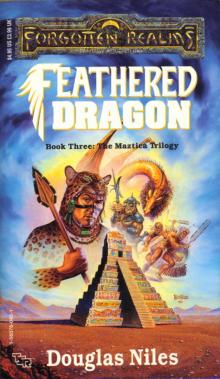 Feathered Dragon mt-3
Feathered Dragon mt-3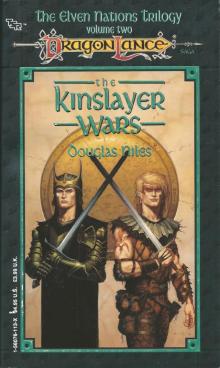 The Kinslayer Wars
The Kinslayer Wars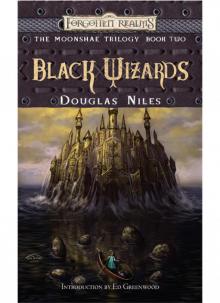 Black Wizards
Black Wizards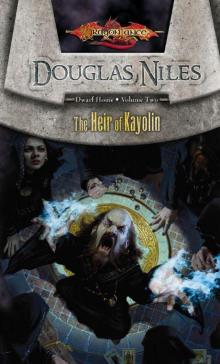 The Heir of Kayolin dh-2
The Heir of Kayolin dh-2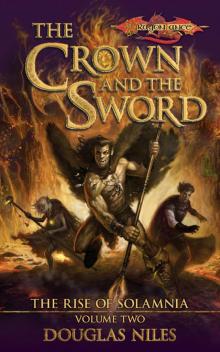 The Crown and the Sword tros-2
The Crown and the Sword tros-2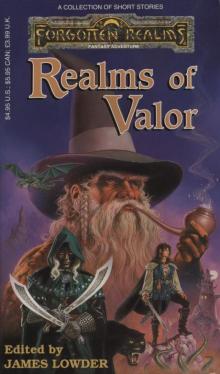 Realms of Valor a-1
Realms of Valor a-1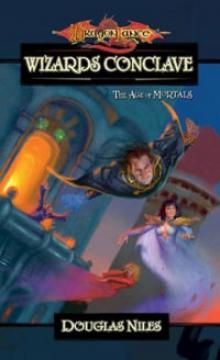 Wizards Conclave aom-5
Wizards Conclave aom-5 Fox On The Rhine
Fox On The Rhine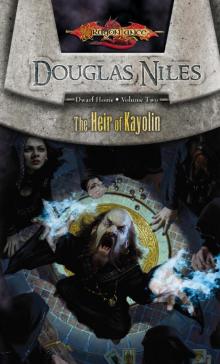 The Heir of Kayolin
The Heir of Kayolin Fox at the Front (Fox on the Rhine)
Fox at the Front (Fox on the Rhine)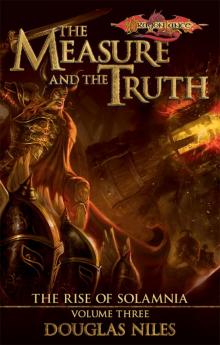 Measure and the Truth tros-3
Measure and the Truth tros-3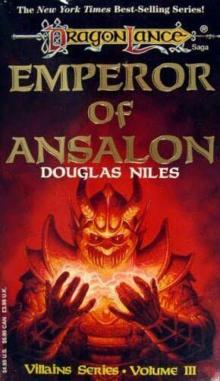 Emperor of Ansalon (d-3)
Emperor of Ansalon (d-3)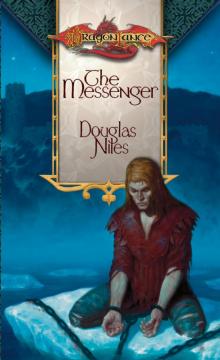 The Messenger it-1
The Messenger it-1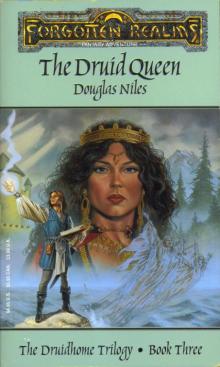 The Druid Queen tdt-3
The Druid Queen tdt-3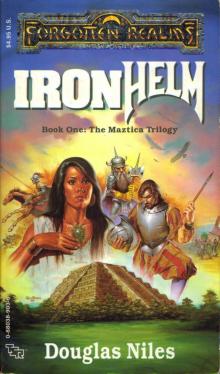 Ironhelm mt-1
Ironhelm mt-1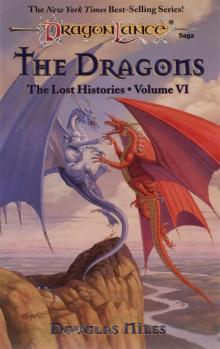 The Dragons lh-6
The Dragons lh-6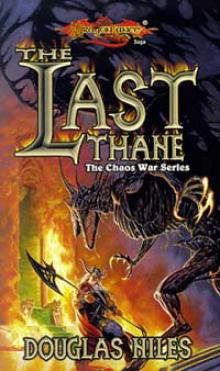 The Last Thane cw-1
The Last Thane cw-1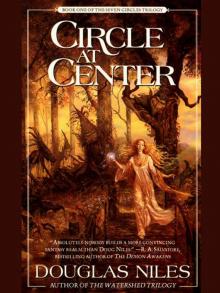 Circle at center sc-1
Circle at center sc-1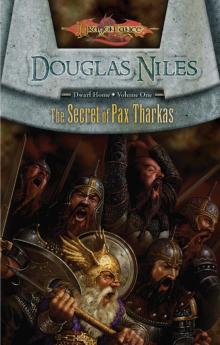 Secret of Pax Tharkas dh-1
Secret of Pax Tharkas dh-1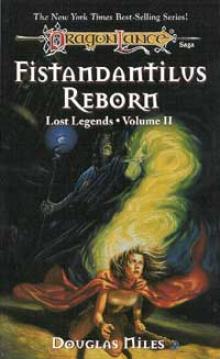 Fistanadantilus Reborn ll-2
Fistanadantilus Reborn ll-2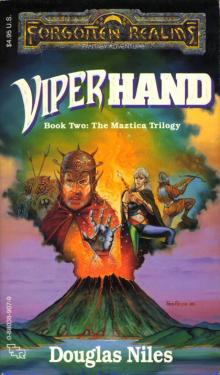 Viperhand mt-2
Viperhand mt-2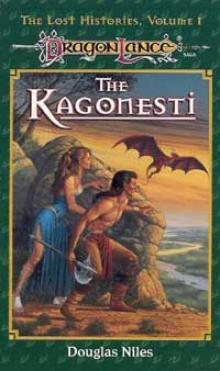 Kagonesti lh-1
Kagonesti lh-1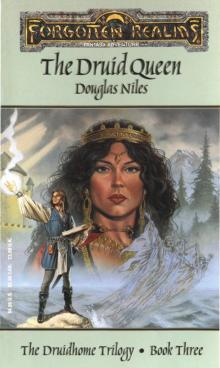 The Druid Queen
The Druid Queen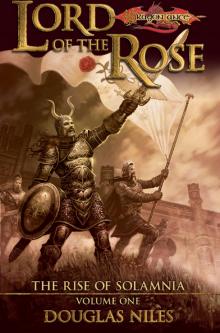 Lord of the Rose tros-1
Lord of the Rose tros-1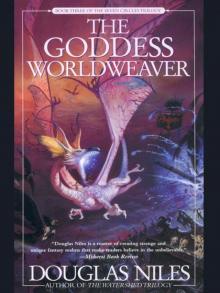 Goddess Worldweaver sc-3
Goddess Worldweaver sc-3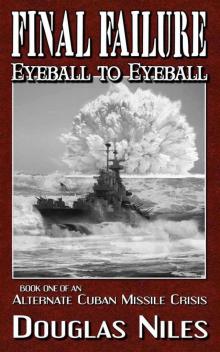 Eyeball to Eyeball (Final Failure)
Eyeball to Eyeball (Final Failure)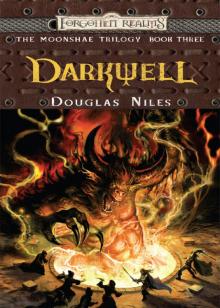 Darkwell
Darkwell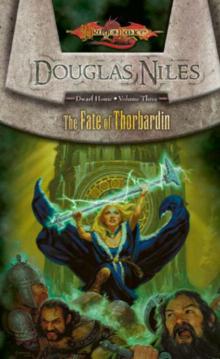 Fate of Thorbardin dh-3
Fate of Thorbardin dh-3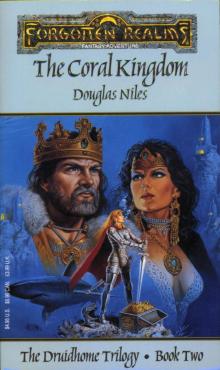 The Coral Kingdom tdt-2
The Coral Kingdom tdt-2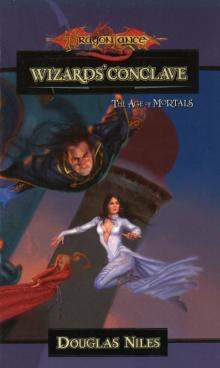 Wizard's Conclave
Wizard's Conclave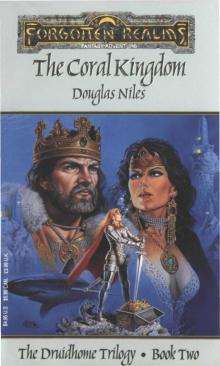 The Coral Kingdom
The Coral Kingdom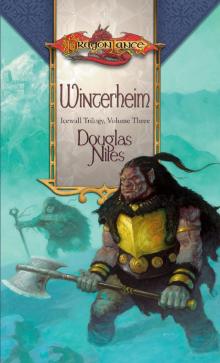 Winterheim it-3
Winterheim it-3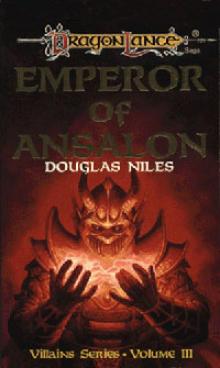 Emperor of Ansalon v-3
Emperor of Ansalon v-3 MacArthur's War: A Novel of the Invasion of Japan
MacArthur's War: A Novel of the Invasion of Japan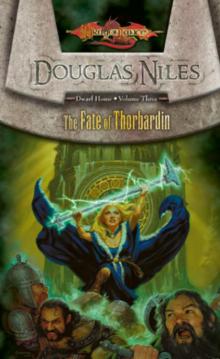 The Fate of Thorbardin
The Fate of Thorbardin The Rod of Seven Parts
The Rod of Seven Parts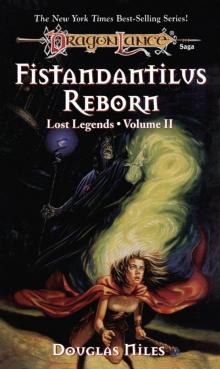 Fistandantilus Reborn
Fistandantilus Reborn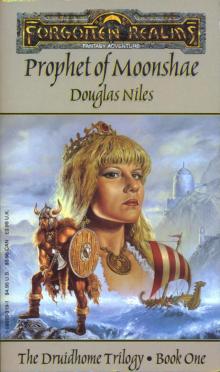 Prophet of Moonshae tdt-1
Prophet of Moonshae tdt-1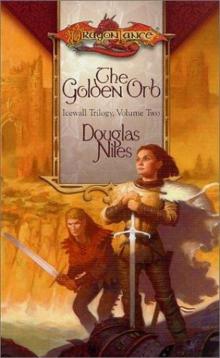 The Golden Orb i-2
The Golden Orb i-2